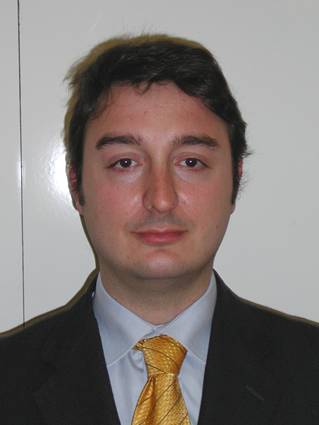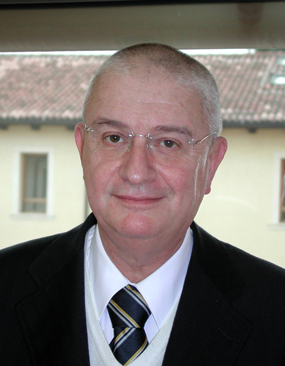Studying at the University of Verona
Here you can find information on the organisational aspects of the Programme, lecture timetables, learning activities and useful contact details for your time at the University, from enrolment to graduation.
Academic calendar
The academic calendar shows the deadlines and scheduled events that are relevant to students, teaching and technical-administrative staff of the University. Public holidays and University closures are also indicated. The academic year normally begins on 1 October each year and ends on 30 September of the following year.
Course calendar
The Academic Calendar sets out the degree programme lecture and exam timetables, as well as the relevant university closure dates..
| Period | From | To |
|---|---|---|
| 1° semestre | Oct 1, 2012 | Dec 14, 2012 |
| Periodo riservato ad eventuali recuperi di lezioni - dicembre 2012 | Dec 17, 2012 | Dec 18, 2012 |
| 2° semestre - febbraio/marzo 2013 | Feb 11, 2013 | Mar 25, 2013 |
| 2° semestre - aprile/maggio 2013 | Apr 3, 2013 | May 7, 2013 |
| Periodo riservato ad eventuali recuperi di lezioni - maggio 2013 | May 8, 2013 | May 10, 2013 |
| Session | From | To |
|---|---|---|
| Sessione straordinaria 12/13 - studenti f.c. - dicembre 2012 | Dec 19, 2012 | Dec 22, 2012 |
| 1° appello - Sessione invernale 12/13 | Jan 7, 2013 | Jan 12, 2013 |
| 2° appello - Sessione invernale 12/13 | Feb 4, 2013 | Feb 9, 2013 |
| Sessione straordinaria 12/13 - studenti f.c. - marzo 2013 | Mar 26, 2013 | Mar 28, 2013 |
| 1° appello - Sessione estiva 12/13 | May 13, 2013 | May 18, 2013 |
| 2° appello - Sessione estiva 12/13 | Jun 10, 2013 | Jun 15, 2013 |
| 3° appello - Sessione estiva 12/13 | Jul 8, 2013 | Jul 13, 2013 |
| 1° appello - Sessione autunnale 12/13 | Aug 29, 2013 | Sep 4, 2013 |
| 2° appello - Sessione autunnale 12/13 | Sep 24, 2013 | Sep 30, 2013 |
| Session | From | To |
|---|---|---|
| Termine presentazione tesi di laurea - settembre 2012 | Sep 28, 2012 | Sep 28, 2012 |
| Sessione autunnale 12/13 | Oct 22, 2012 | Oct 23, 2012 |
| Termine presentazione tesi di laurea - gennaio 2013 | Jan 9, 2013 | Jan 9, 2013 |
| Sessione invernale 12/13 | Jan 31, 2013 | Feb 1, 2013 |
| Termine presentazione tesi di laurea - marzo 2013 | Feb 28, 2013 | Feb 28, 2013 |
| Sessione invernale 12/13 - marzo 2013 | Mar 21, 2013 | Mar 25, 2013 |
| Termine presentazione tesi di laurea - luglio 2013 | Jun 10, 2013 | Jun 10, 2013 |
| Sessione estiva 12/13 | Jul 4, 2013 | Jul 5, 2013 |
| Termine presentazione tesi di laurea - settembre 2013 | Aug 29, 2013 | Aug 29, 2013 |
| Sessione estiva 12/13 - settembre 2013 | Sep 20, 2013 | Sep 23, 2013 |
| Period | From | To |
|---|---|---|
| Ognissanti | Nov 1, 2011 | Nov 1, 2011 |
| Festa dell'Immacolata Concezione | Dec 8, 2012 | Dec 8, 2012 |
| Vacanze di Natale | Dec 23, 2012 | Jan 6, 2013 |
| Vacanze di Pasqua | Mar 29, 2013 | Apr 2, 2013 |
| Festa della Liberazione | Apr 25, 2013 | Apr 25, 2013 |
| Festa dei Lavoratori | May 1, 2013 | May 1, 2013 |
| Festa Santo Patrono | May 21, 2013 | May 21, 2013 |
| Festa della Repubblica | Jun 2, 2013 | Jun 2, 2013 |
Exam calendar
Exam dates and rounds are managed by the relevant Law Teaching and Student Services Unit.
To view all the exam sessions available, please use the Exam dashboard on ESSE3.
If you forgot your login details or have problems logging in, please contact the relevant IT HelpDesk, or check the login details recovery web page.
Should you have any doubts or questions, please check the Enrollment FAQs
Academic staff
 giovanni.alberti@univr.it
giovanni.alberti@univr.it
 mariacaterina.baruffi@univr.it
mariacaterina.baruffi@univr.it

Dalla Massara Tommaso
 tommaso.dallamassara@univr.it
tommaso.dallamassara@univr.it
 +39 045 8028810
+39 045 8028810
 roberto.flor@univr.it
roberto.flor@univr.it
 +39 045 8028812
+39 045 8028812
 rita.maggi@univr.it
rita.maggi@univr.it
 martina.menon@univr.it
martina.menon@univr.it

Patrono Paolo
 paolo.patrono@univr.it
paolo.patrono@univr.it
 +39 045 8028813
+39 045 8028813
 federico.reggio@univr.it
federico.reggio@univr.it
 lorenzo.salvatore@univr.it
lorenzo.salvatore@univr.it
Strano Silvana
 silvana.stranoligato@univr.it
silvana.stranoligato@univr.it
 +39 045 8028856
+39 045 8028856
 claudio.tomazzoli@univr.it
claudio.tomazzoli@univr.it
 alice.valdesalici@univr.it
alice.valdesalici@univr.it
 marcella.veronesi@univr.it
marcella.veronesi@univr.it

Zini Francesco
 francesco.zini@univr.it
francesco.zini@univr.it
 +39 045 8028883
+39 045 8028883
Study Plan
The Study Plan includes all modules, teaching and learning activities that each student will need to undertake during their time at the University.
Please select your Study Plan based on your enrollment year.
1° Year
| Modules | Credits | TAF | SSD |
|---|
Principles of economics
Roman Law Institutions
History of Medieval and Modern Law
2° Year activated in the A.Y. 2013/2014
| Modules | Credits | TAF | SSD |
|---|
Un insegnamento a scelta tra i seguenti3° Year activated in the A.Y. 2014/2015
| Modules | Credits | TAF | SSD |
|---|
Terminologia giuridica di una lingua straniera4° Year activated in the A.Y. 2015/2016
| Modules | Credits | TAF | SSD |
|---|
Un insegnamento a scelta tra i seguenti5° Year activated in the A.Y. 2016/2017
| Modules | Credits | TAF | SSD |
|---|
Cinque insegnamenti a scelta tra i seguenti| Modules | Credits | TAF | SSD |
|---|
Principles of economics
Roman Law Institutions
History of Medieval and Modern Law
| Modules | Credits | TAF | SSD |
|---|
Un insegnamento a scelta tra i seguenti| Modules | Credits | TAF | SSD |
|---|
Terminologia giuridica di una lingua straniera| Modules | Credits | TAF | SSD |
|---|
Un insegnamento a scelta tra i seguenti| Modules | Credits | TAF | SSD |
|---|
Cinque insegnamenti a scelta tra i seguentiLegend | Type of training activity (TTA)
TAF (Type of Educational Activity) All courses and activities are classified into different types of educational activities, indicated by a letter.
Foundations and models in Sales Law (2016/2017)
Teaching code
4S000617
Teacher
Coordinator
Credits
6
Language
Italian
Scientific Disciplinary Sector (SSD)
IUS/18 - ROMAN AND ANCIENT LAW
Period
1° periodo di lezioni dal Oct 3, 2016 al Dec 16, 2016.
Learning outcomes
The overall objective of the course is to underline the profile of the most significant conceptual models concerning the contract of sale, through a diachronic analysis from its origin in the Roman juridical tradition. In particular, a specific focus will be given on seller’s liability, warranties for defects and against eviction, and buyer’s protections. It will also be highlighted the difference between different dogmatic reconstruction represented by the ‘binding-effects sale’ and the ‘real-effects sale’ in the Roman law tradition.
The sale contract is the perfect context for deepen the bi-millennial stratification of theoretical approaches and solutions for the transfer of ownership issue. Therefore, it will be analysed some cases of law.
Program
The sale contract as synallagmatic contract. Warrenties for defects: ‘actio aestimatoria’ and ‘actio redhibitoria’. The unfulfillement and responsability. The eviction. New trading models comparison: compliance obligation. Specific problems concernig the purchase agreement: the specific case of the contract of share holding’s transfer. Throughout the course il will be analysed some Italian and European Courts’ judgements.
Suggested texts
E. RUSSO, Vendita e consenso traslativo, Milano, 2010
A. LUMINOSO, La compravendita6, Torino, 2009
AA.VV., La compravendita e l’interdipendenza delle obbligazioni, a cura di L. Garofalo, Padova, 2007
Examination Methods
The examination will be oral. For students who attend the course the exam programme will be agreed during lessons; for students who did not attend the course is recommended to contact the professor to agree upon the exam programme.
Teaching materials e documents
-
 PROGRAMMA E TESTI CONSIGLIATI
(msword, it, 26 KB, 22/09/16)
PROGRAMMA E TESTI CONSIGLIATI
(msword, it, 26 KB, 22/09/16)
Type D and Type F activities
Modules not yet included
Career prospects
Module/Programme news
News for students
There you will find information, resources and services useful during your time at the University (Student’s exam record, your study plan on ESSE3, Distance Learning courses, university email account, office forms, administrative procedures, etc.). You can log into MyUnivr with your GIA login details: only in this way will you be able to receive notification of all the notices from your teachers and your secretariat via email and also via the Univr app.
Language skills
Graduation
Internships
Internships are aimed at enabling students to gain direct knowledge of the world of work and to acquire specific professional skills.
Internships are carried out under the responsibility of an individual lecturer, and can be carried out in professional firms, public administration bodies and companies recognised by the University of Verona.
Any CFU credits gained by doing internships will be recognised and recorded by the University in accordance with the relevant University regulations in force (Regolamento d’Ateneo per il riconoscimento dei crediti maturati negli stage universitari).
For further information on internships, please go to: https://www.univr.it/it/i-nostri-servizi/stage-e-tirocini.












































